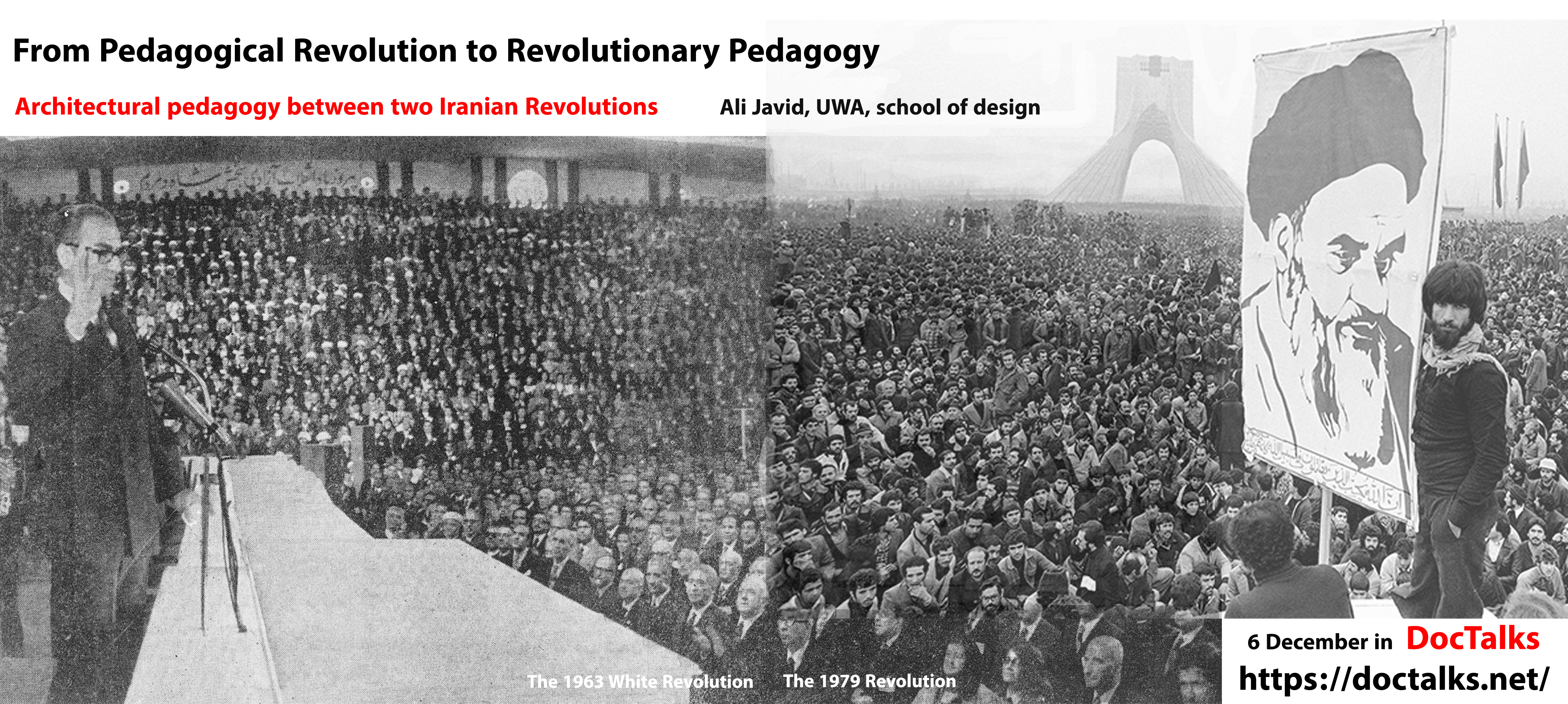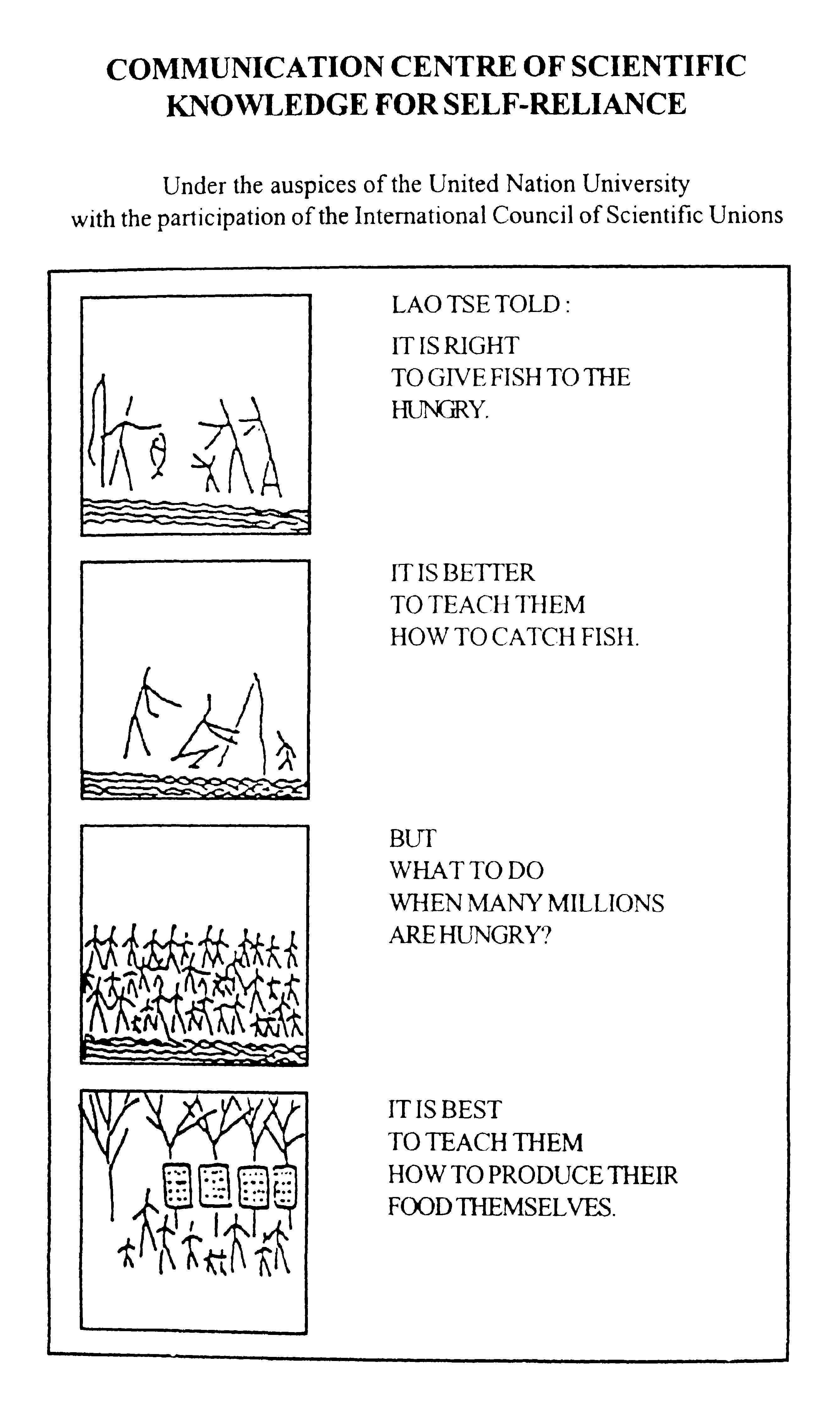PAST TALKS 2022
6 December 2022
From Pedagogical Revolution
ALI JAVID
University of Western Australia
Respondent: Farbod Afshar Bakeshloo, The Bartlett UCL
![]()
***
Yona Friedman and Eda Schaur’s
FREDERIKE LAUSCH
TU Darmstadt
Respondent: Jesse Lockard, University of Chicago
![]()
Friedman, Yona and Eda Schaur, CCSK. 2003. Environment and Self-Reliance. New Delhi: Vigyan Prasser.
This postdoctoral research project in architectural history aims to examine the role of architecture in “development aid” and the mutual learning processes between the Global North and South in terms of ecological sustainability, focusing on self-help manuals that were circulated globally, predominantly in the 1970s and 1980s. These manuals which assembled and presented planning, building and survival knowledge in the form of comic strips were produced by the Communication Centre of Scientific Knowledge for Self-Reliance (CCSK). The CCSK, founded in Paris in 1983 by Hungarian-French architect Yona Friedman and Slovenian-born Austrian architect Eda Schaur, was funded by the United Nations University and collaborated with the International Council of Scientific Unions. The manuals were made available for reproduction by individuals or organizations and were distributed with a particular focus on India. The CCSK manuals designed for then-called “developing countries” are compared with Friedman’s manuals and books aimed at individuals in the Global North. Thereby the study addresses questions regarding the conceptualization of the relationship between experts and users and transfers of knowledge. Its underlying proposition is that the CCSK manuals can tell us more about the Global North than the Global South, with the predominant theme being the ecological crisis. The CCSK manuals seem to present a romanticized picture of the mode of survival of slum dwellers in “developing countries” and render it into a model of an alternative lifestyle for the Global North, one that was purportedly better able to adapt to a future life of resource scarcity. This project thus aims to explore how sustainable architectural practices have emerged in the engagement with “developing countries” and so-called “simple technology.”From Pedagogical Revolution
to Revolutionary Pedagogy:
The Politics of Architectural Pedagogy
from the 1963 White Revolution
to the 1979 Revolution in Iran
ALI JAVID
University of Western Australia
Respondent: Farbod Afshar Bakeshloo, The Bartlett UCL

During the Cold War, the Middle East witnessed socio-political reforms or revolutions with different goals and slogans: from the USA-sponsored economic-social reforms of the Point Four Plan, the objective of which was the modernization and development of the societies of the Middle Eastern countries within the Western orbit of influence, to the emergence of anti-colonial and anti-imperialist revolutions with the slogans of independence and Islamism. These radical changes coincided with the emergence of new architectural universities and modern pedagogy, which, along with the goals of reform or revolution, acted as agents of change in society. This thesis focuses on the interaction of revolutions and architecture pedagogy in two contemporary revolutions in Iran, The White Revolution (1963) and The Islamic Revolution (1979). It interrogates the design studio as a backbone of architecture pedagogy, an institutionalized pedagogical framework that forms a socio-political assemblage, in order to identify and translate the spatial network of connections between politics and pedagogy. Accordingly, design studios, consisting of agents such as professors, students, curriculum, design brief, models, drawings, books, magazines, exhibitions, and communities, are politically shaped and transformed by the architecture pedagogy. Indeed, the design studio is a network of actors which is a systematic agenda between pedagogy and politics, and which is changed and developed based on the socio-political aims. This thesis charts a transformation of the structure and content of the architecture pedagogy as it adapts to the socio-political agendas of each revolution, The White Revolution (1963) and The Islamic Revolution (1979). The trajectory of the transformation of the architecture pedagogy started in 1963 when a new system of architecture education, Italian pedagogy, was brought to Iran according to the agenda of development and modernization of the country and decolonized the curriculum from the previous Beaux-Arts-derived pedagogical system; it continued up to the Cultural Revolution (1980-1984) when the new Islamist regime decided to “detoxify” the curriculum from its Western influence and Islamicize it as a utopia of the Future-Past.
***
Yona Friedman and Eda Schaur’s
Self-Help Manuals for India
Architecture and Sustainability
in the Context of “Development Aid”
FREDERIKE LAUSCH
TU Darmstadt
Respondent: Jesse Lockard, University of Chicago

Friedman, Yona and Eda Schaur, CCSK. 2003. Environment and Self-Reliance. New Delhi: Vigyan Prasser.